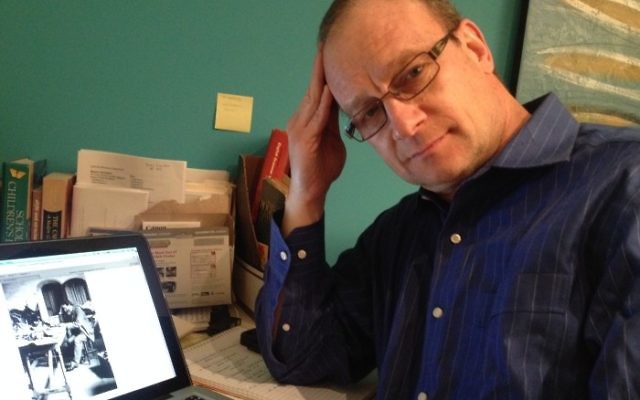Honest, I Tried to Learn Hebrew
Fluency would have been nice, but it was possible to live in Israel without being fluent in Hebrew.
Dave Schechter is a veteran journalist whose career includes writing and producing reports from Israel and elsewhere in the Middle East.
I write this with apologies to the late Meyer Shisler, a Polish immigrant who devoted his life to Jewish education, primarily in the Chicago suburbs. For several years, he attempted to teach me Hebrew, in classes after public school twice a week and during Sunday school.
Despite his efforts, I arrived in Israel years later with a vocabulary pretty much limited to three words: ima, abba, and kelev, which, for non-Hebrew speakers, are the words for mother, father, and dog.
After a couple of months in an ulpan – an intensive Hebrew program – which I left after hiring on with an American television network, I could speak the minimum necessary to stumble through daily life.
As for reading, ponderous is a generous description of the pace at which I translated the “easy Hebrew” newspaper.
One night in Jerusalem, an American couple stopped me on the street and, mistaking me for an Israeli, apologized for not speaking Hebrew and asked for directions. At least I looked the part.
My journalistic abilities made up for my linguistic shortcomings, and for the better part of two years, I worked as the Jerusalem bureau producer alongside a correspondent who had made aliyah from America a dozen years earlier and Israeli camera crews and editors whose English was superior to my Hebrew.
Still, I wish I could have sung along with the Hebrew songs on the radio and not needed the translation of jokes told in my presence or been able to read a newspaper other than The Jerusalem Post.
(I’m writing this while listening to Kaveret, a major band in the history of Israeli rock ’n roll, picking out every sixth or seventh word, if I’m lucky.)
I interviewed government officials, including a couple of prime ministers, and numerous Israelis of lesser renown in English (and even then, was left feeling inadequate by the mellifluous Abba Eban).
Today, email, Twitter and Facebook bring me more than two dozen sources of news from Israel, from the political left to the right – in English.
All of this is to note a complaint made by Daniel Gordis, an American-Israeli who writes and speaks on Israeli affairs, often about relations between Israel and American Jews.
In a Times of Israel blog, Gordis took a shot at a Reform rabbi in Washington, D.C., who had “implored his congregation to act before it is too late, to save Israel from itself.”
Gordis asked: “Who are these people who are being urged to save Israel? Can they read the op-ed page of a Hebrew newspaper? Since they cannot, and since the vast majority of the Hebrew press is not translated into English, why do they imagine that they know what’s best for Israel without being exposed to what millions of Israelis think, without access to Israeli discourse on the subject? (Not speaking Hebrew is no crime, of course, but should it not engender at least some humility when it comes to speaking about Israel?)”
Perhaps Gordis would prefer that American Jews not fluent in Hebrew – even those who visit and stay informed – remain silent partners in the Israeli enterprise. Send your money, lobby your congressmen, but keep to yourself any suggestions about how we should conduct our affairs, even when those actions affect American Jewry. (I can think of several Israeli government and religious figures who might consider a little humility of their own when it comes to judging the life of American Jews.)
“The stubborn American Jewish refusal – even by many Jews who are active in Jewish life and who mouth Hebrew words as sounds week after week in synagogue – to treat Hebrew as a language that can be learned, spoken and used, is nothing short of bizarre,” Michael Weingrad, a professor of Jewish studies at Portland State University, wrote a few years ago.
Perhaps that refusal is not so bizarre when you consider that Hebrew is spoken in just one country, a country that most American Jews have not visited and that – notably – many do not hold at the center of their Judaism.
Of course, it would be good if more American Jews who talk about Israel visited, but that’s a subject for another day.




comments